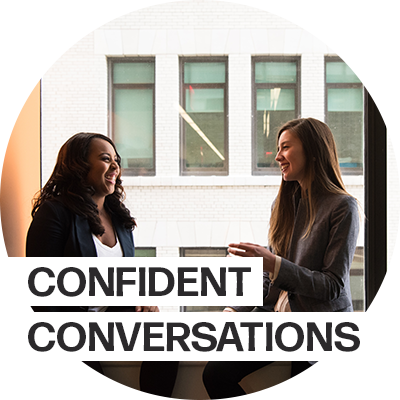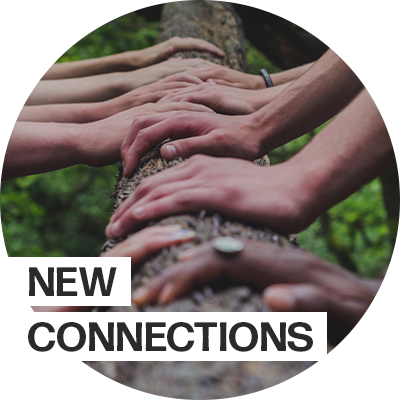11 Steps to Learn a New Language with Meetups… Even if You Feel Terrified!
I’ll never forget the look of surprise my Preply teacher had when I told her that I attended a meetup for French speakers.
She asked me in French how it went and I told her honestly, Ma tête ferme après cinq mots dans chaque phrase. That translates to “My head closes after five words in each sentence.” I wanted to say, “I couldn’t understand any sentences longer than five words,” but I didn’t have the vocabulary for that.
You see, I had only been studying French for about 10 minutes a day for two months. I was a super-dooper beginner.
Driving to my first French speakers meetup group, I remember thinking over and over again, “Why on earth am I putting myself through this?” My life is busy. I don’t need additional stress!
I’m not going to lie to you. At times, the first meetup was awful. I’m talking stiff neck, frozen smile, red-face awful for brief moments. When the native speaker next to me asked me what I do for fun, my brain was so tired from trying to understand the sixth word in every single one of his ridiculously long sentences that the only word I could remember was dormir. J’aime dormir. “I like to sleep.” He did a weird blink and excused himself for a restroom break.
Another embarrassing moment was when a native speaker attempted to introduce himself to me from across the table. Instead of using the phrase, Je m’appelle Jean (which is one of the first phrases you learn) he got cute and said, Mon nom est Jean. I could barely hear him with the music blaring and I asked him to repeat himself. He politely said it again. I still had no idea what he was saying and said, Je ne comprends pas. Je suis désolée. “I don’t understand. I’m sorry.” Three other people thought it might be a good idea to shout the sentence at me a little louder and that’s when my face caught on fire (with embarrassment not actual flames). Finally, the dude that knew me as the woman whose favorite pastime is snoozing whispered to me in English, “His name is Jean.” Oh sweet relief!
I then launched into one of the phrases I memorized early and use all the time, Je suis encore débutante. “I am still a beginner.” Jean laughed heartily and said in French, “Oof. I’m glad to hear that. I was beginning to get insulted.” I did understand that sentence. Looking around seeing everyone smile kindly at me, balance was once again restored to my universe.
It’s only recently that I’ve realised why I keep going back to language meetups, despite many moments like these. It’s the thrill of the rollercoaster ride. On my way there, it’s much like waiting in line for a ride with three loops. My palms get clammy. I consider ducking out. Only there’s no friend in line with me to keep me going. But with almost every meetup I go to, I’ll have some amazing (and sometimes hilarious) experiences.
I’m writing this post in hopes that you don’t have to have as traumatic a first meetup as little, ‘ole introverted me. Here’s what I do differently now and it’s made a huge difference.
Step 1: Repeat The Mantra “The First Time Is Always The Hardest”
For me, new experiences can be challenging. I repeat this mantra to myself before any new event/task/experience that makes me nervous. “The first time is always the hardest. All I need to do is get through the initial discomfort.” I also remind myself why I’m doing what I’m doing. In the case of a French meetup, I want to become conversationally fluent in French. That goal is important enough for me to push through the angst.
Step 2: Bring a Security Blanket
At French meetups, I bring my French notebook with me. In the car, I review a few key phrases that I might use. I bring it into the meetup with a pen. If someone mentions a new word I like, I write it down. I often ask someone how to spell new words. Having a notebook gives me something to hold when I feel nervous. I’m not kidding. It’s my security blanket.
I set an alarm on my cell phone for 1.5 hours. That’s about all the French my brain can take in a night. When it beeps, I turn it off and announce to my new French speaking buddy that I must leave. (Je dois partir.) This security blanket reminds me that the event will have an end and I can then go home and do the hobby I am most famous for. Sleep.
Step 3: Bookend the Meetup With “Safe Friend” Calls
I don’t need it as much now but I do still call my French learning buddy before and after an event to share with her what I learned, what was hard, and what I might do differently next time. This helps me process the learning experience and grow from it. As it turns out, my friend enjoys these calls because it gives her ideas on what she might try next on her language learning journey. It helps when I’m feeling insecure about my progress, too.
Step 4: Wear Something That Doesn’t Show Armpit Sweat
Once a French speaker hears me spout out a sentence with relative ease (I’ll explain why I can do this as a relative beginner in a moment), they usually rev their engines and take off talking to me at breakneck speed. And that causes me to sweat. I can’t help it. It’s like a rollercoaster. You know the loop is coming but you don’t exactly know when and then, whoosh! Now, I put on extra strength herbal deodorant (which is a whole other post) before leaving the house and I roll with it. Speaking a new language is challenging. It will push your limits but it’s worth it.
Step 5: Take a Deep Breath, and Remember Everyone Is in the Same Boat as You
It’s important to remember that everyone there wants exactly what you want. They are attending the event because they want to speak in their target language. Lots of people come by themselves, too. It’s often hard to get a friend to join me because speaking a new language with new people can be intimidating. If you make it through the door of your first meetup, consider yourself totally badass. It’s a true act of courage.
Step 6: Work the Room
As an introverted person, when I’m at a party, I typically pick a safe corner to land and hang out there. It settles my nerves to have a little area where I can hear people better and feel comfortable. I feel like I can deep dive into a conversation with a friend if I’m not in the middle of a crowded room.
With a language meetup, it’s the absolute opposite. Sound counterintuitive? Let me explain.
In my native language, I enjoy cutting out the small talk and discussing things that matter most to me. That’s not yet possible in my target language. My safety net is in those shorter, simpler conversations.
If I plop myself down in one seat, the people on either side of me try to be nice and continue talking after we have had a lovely simple five minute chat. They want to know more about me. They want to tell me more about themselves. They wouldn’t mind talking at a normal pace. This rarely works though because we’re often venturing into uncharted territory and my brain gets tired fast with new information.
That’s when “the glaze” happens. Let me explain what I mean.
Step 7: Prevent “The Glaze”
If I leave the conversation politely by excusing myself for a minute, I will accomplish a few magical things. I will give the more advanced speakers a chance to speak amongst themselves without totally dumbing it down for me. Let’s face it. Talking to someone who stops and starts and grabs for words and pulls weird sentences out of the sky is charming for about 10 minutes, but not for much longer than that. When I see my new friend’s eyes start to glaze over, I know it’s time to work the room.
Leaving a conversation after a few minutes gives my brain a reboot. For example, last night, there was a patient native speaker with a clear, booming voice talking to me at a slow and steady pace. About 10 minutes into our conversation, I felt my eyelids become heavy. What was happening? He was the perfect person to converse with in French. My brain was telling me it needed a break. Once I excused myself and started another conversation from scratch with phrases that were familiar to me, I felt myself perk up again. I don’t imagine this will be a necessity forever but for now, my brain needs little mini-breaks to get through 1.5 hours of speaking in a new language.
Step 8: Know How to Introduce Yourself
As I make my way to a new victim, uh…err, I mean new friend, I now have a chance to start again with introductions and one or two of my favorite topics. I enjoy language learning and travel. Spoiler alert: Most language learners enjoy talking about the art of language learning and quite a few have travelled extensively or want to. So that’s where my me-specific vocabulary comes in handy.
I often share about my absolute favorite resource, the Language Hacking French book. Then, I dazzle them with tales of learning French as an autodidact. Lots of people ask me about how I learned to study on my own. And I lead them directly to Fluent in 3 Months.
Once I’ve gotten to know a few people through repeated appearances at meetups, my brain is now ready to ask new things. For example, my new friend Christine asked me how the book I’m writing is going. And I asked her where her friend that usually joins her was. It’s just like any other budding relationship, you make a point of remembering one or two facts about the person and follow-up with them when you see them again.
Step 9: Create Your Own “Top 10” Cheatsheet
I have a few favorite “go to” statements. I sprinkle these sentences into each conversation I have with different people throughout the night, Je suis encore débutante. J'apprends le français depuis deux mois. Et toi? Un jour, je veux apprendre trois langues: le français, l’espagnol et le chinois. (“I am still a beginner. I’ve been learning for 2 months. And you? One day, I want to learn three languages: French, Spanish and Chinese.”)
It helps your language partner to know upfront that you’re a beginner. They will adjust for you. It also takes the pressure off. The next question is almost always, “How long have you been studying?” It seems any answer under a year impresses them. I think that’s because most beginners that learn formally don’t speak from day one. That’s a huge advantage.
Because I’ve practiced my top 10 list over and over, it rolls off my tongue quite effortlessly and people assume I’m already fluent (which leads nicely into the next step). Most of these cheatsheet phrases come from Language Hacking French.
- Bonjour – “Hello”
- Ça va? – “How’s it going?”
- Ça va bien, merci. – “It’s going well, thank you.”
- Je suis encore débutante. – “I’m still a beginner.”
- Plus lentement, s’il te plaît. – “Slower, please.”
- J’oublie le mot. – “I forget the word.”
- Et toi? – “And you?” (My most important question. I’ll make a statement about myself and then add, “and you” to get their response.) e.g. “I live in California. And you?” That helps when I’m a little shaky on how to form a complex question.
- J’habite à San Francisco. Et toi? – “I live in San Francisco. And you?”
- Je parle anglais et en peu français. – “I speak English and a little French.”
- Un jour, je veux apprendre trois langues: le français, l’espagnol et le mandarin. – “One day, I want to learn 3 languages: French, Spanish and Mandarin.”
Step 10: Remember, Meetups Get Easier As You Continue To Attend
After my first meetup, I shook the discomfort off like a wet dog shaking in the summer sun. After a few visits to the same meetup, it’s so much easier. People remember me. They ask me about my job and my book and my language studies. It’s nice to be known.
And if you are unlucky because the meetup you attend isn’t full of super friendly people or it’s full of people constantly speaking English, don’t lose heart. It’s a numbers game. Kind of like dating, you might need to try out more than one group to see which fits you best. Not everyone marries their high school sweetheart. I didn’t and I am sure glad I kept looking.
Step 11: Don’t Forget To Say “Thank You”
When I walk around to each person to say, À bientôt (“see you soon”), I also make sure to thank them for their kindness. Once I’m fluent, I will be sure to offer the same level of graciousness to the next red-faced, deer-in-the-headlights looking beginner that bravely enters the group.
Now, why don’t you attend a meetup group for your target language? I’d love to hear how you get along!









Social